Sh*t this black girl said to a white girl
Let me introduce you to Franchesca Ramsey.
She is one of my favourite vloggers, and my dread lock guru. I have a serious hair crush on her dreadlocks and my current Face book picture, with the curled up dreads? yeah, that was inspired by one of her Youtube videos.
She seriously rocks.
One of my all time favourite videos that she has is her “Sh*t white girls say to black girls”. But she does lots of other stuff. Comedy, dread lock tutorials, activist, she’s just great.
Now, usually when I read titles like the one of the video above and I see that it’s an American, I pass. Because seriously, America and its race relations is just one pot I do not like to stir. They have serious issues over there. But the sad fact is that being the largest melting pot of human culture, they get held up as the beacon of how races interact and have interacted, regardless of how silly I find it, given the violent origins and foundations of the state.
But what I find disturbing is the whole belief that all black people share a common culture. The simple fact that people see more American based television and movies and this is presumably where they get to see ahem, “black” culture, what stands in America must stand outside of it. which is frankly, ridiculous.
Now when I lived in my own “we are the majority” bubble in Zambia, I wasn’t confronted with this belief. Why would I be? and similarly, to the average Zambian in the eighties, there was a huge homogeneous mass of Europeans out there who were all white and all spoke English.
I was also more aware of racism and it’s underlying unconscious threads because of the time we lived in Namibia, so I would say that I am more open to talking about race and confronting people about their presumptions a lot more than I have seen others be either here in Ireland or in Zambia.
So anyhoo, when I initially saw this video, I laughed my arse off, because while in some ways I have heard most of those things, they don’t have the same feel to me as I suppose they do in America.
“This is so ghetto”,
for me, ghetto doesn’t have the same connotations that it would have for a black person in the US. We don’t have ghettos in Zambia. We have compounds and hell yeah if someone said I looked like a compound person I would be insulted, so no, some of the terms don’t have the same meaning for me.
I think though, with the movement that has begun of natural hair, across all “races” but most specifically across those women that identify as black, that is a movement we all share as “black” women.
And yes I have been asked,
“Is that your real hair?”, “Can I touch it?” “Oh, so that’s not your hair?” over my years here in Ireland. Mostly I write it off as curiosity. Black people haven’t been in Ireland that long, hell, even other white people from other countries haven’t been here that long. But yes as a visible minority, we haven’t got the ability to blend in as much. So I understand the curiosity. It is true to some extent that black women seem to be able to do a lot with their hair and once a person who has been in a homogeneous mass of their own hair type, it’s natural to be intrigued by other people’s styling skills. But, and it’s a big BUT.
I would never ever ever ask another woman if that’s her hair. For two reasons:
1. What business is it of mine if it is or it isn’t.
2. Does it affect the price of bread in China if I know? no, it does not.
so why ask? unless I want to know where she got it so I can get myself some too!
But on a serious note, natural hair is something very close to my heart. Growing up, I was given the perception that black hair was fundamentally difficult to manage. all those curls, though beautiful to look at in a bouncy Afro, takes work, takes dedication and lots of time that apparently, parents don’t have.
I longed to have long straight “manageable” hair that didn’t take up so much time.
When I was a kid in Zambia, only children, the poor and drugged out marijuana smokers had natural hair. The first because only children kept their hair natural, and especially children in religious run schools. A grown woman with a job, why would she not do something to make her hair more “manageable” more professional and yes, dare I say it, more *hand flourish* not black?
The only reason as a grown woman after the 1970s (Afro era) why you would have natural hair was because you were either too poor to afford all the long hours in the salon getting your hair braided, too poor to afford all the chemicals needed to straighten it once a month, or too old to give two hoots about what your hair looked like.
And where to start with religious schools? religious schools wanted everyone to look the same. Braiding and straightening your daughter’s hair on a regular basis was for the rich, so in order to avoid any child feeling left out, because unlike Ireland, all religious schools are private and quite prestigious, all children had to have their hair natural. Which was fine, but the school was naive if it thought children didn’t find other ways to distinguish who was wealthy and who wasn’t. And unfortunately, hair length, hair being blow dried and straightened to give the illusion of unnaturally black hair.
As for drugged out marijuana smokers, I could write a book. I remember the first year I had dreads and my parents saw my hair, mum said,
“Are you sure there’s no lice in that hair?”
I mean really! I could have written a book on “Shit Zambian parents say to their children” right there!
But I get it. for my parents, only Rastafarians had dreadlocks in their days. My mum still remembers in the eighties when the police would round up and beat anyone with dreadlocks demanding that they hand over their drug stashes. They were seen as dirty lice-ridden stoners with no point in life. So it’s been a big step for my mum to accept that her eldest daughter has dreadlocks. I’m sure I keep her awake enough already without having dreads on top of that. My fellow dread locked cousin still gets asked if she has marijuana for sale, and gets offered it several times as well.
So yes, I come with all this history of hair. The day I finished college and finally decided it was high time I ditched the weaves and the braids and permed-my-hair. I was so excited. and the second the chemicals were washed out and I looked at this straight, shiny hair lying close to my skull instead of my springy curls, I wanted to cry. I regretted it immediately. And it was a three year period of protecting my fragile roots and letting them grow out under braids before I chopped all the top permed hair, and went for dreadlocks and I have never looked back since. I love my locs. I just love them. And seeing them become more embraced in Zambia and around the world as a natural hair style and not only as a symbol of Rastafarians, it lightens my heart in ways most people wouldn’t understand.
Because the truth of the matter is that “black hair” doesn’t take any more or less work than any other hair. It’s just a different type of hair with it’s own quirks and needs and once you treat it right, you don’t have to do much else. On a normal hair wash day. My hair takes me about two hours to wash, dry, and re-twist. On a day when I want to twist it or curl it or knot it, yes it takes me four hours, but that’s cos I don’t let anyone touch my hair but me. When I’m in Zambia, I just go to a salon with my book and the time flies.
So the global call to natural hair makes all of us think what do we do when we straighten our hair? who tells us that it’s unmanageable? who tells us that we can’t go around with it in knots and in Afros and twists and cornrows at work or at school? When the US military, starts directing a group of people as to what they can specifically do or not do to their hair, and those instructions only affect black women, well, then we have a problem.
The distressing thing I suppose is that though white women also have extensions, they are never asked to the same extent by other “races” if that is their real hair. And therein lies what pisses most women who identify as having black hair, off. Asian women dye their hair blonde and there isn’t the same backlash from their own and other races. Perhaps I don’t see it because I don’t care? but certainly I see far more black women saying,
“Gosh, I wouldn’t dream of having my hair natural. It’s just too…..unruly. You’re so brave to wear yours natural”
And it saddens me. So I don’t feel offended being asked if this is my own hair. It gives me time to take the podium and wax lyrical on my favourite topic: Hair!
But it gets tiring for me too. This one person may have finally worked up the courage to ask their one black friend, a.k.a. me, about hair and what the differences are between braids, locs and weave, and for me, it’s the umpteenth time I’ve heard this and it just pisses me off, which isn’t fair to them, but argh! Who said the world is fair? I’ll tell you who…no one.
So I was really really tickled when, two weeks ago, a work acquaintance was showing me pictures of a wedding she had attended. She usually wears her hair in a sleek blond shoulder length ponytail in work, yet there she was in the picture sporting a mass of blond curls framing her face and lying beautifully over her shoulders.
She looked absolutely radiant, and the first, the very first stupid question of of my mouth was,
“omigod, is that all your own hair?”
whoops!
And if you want to know why it’s important to talk about race, here’s another video by Franchesca, who puts in in very eloquent terms and makes me think, why should I reinvent the wheel?

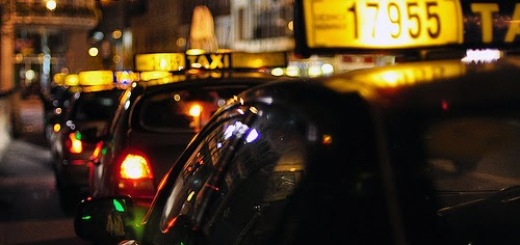
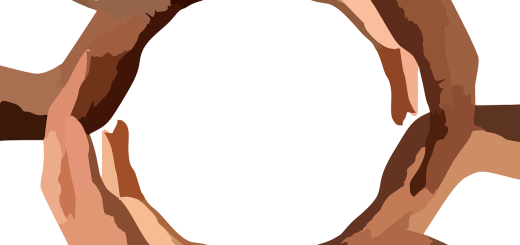

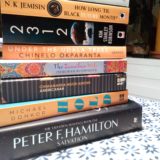
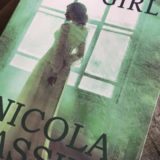
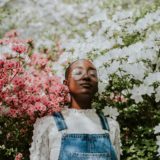

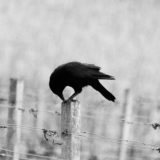
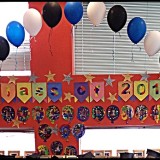

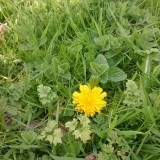

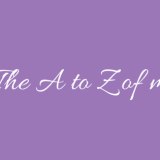
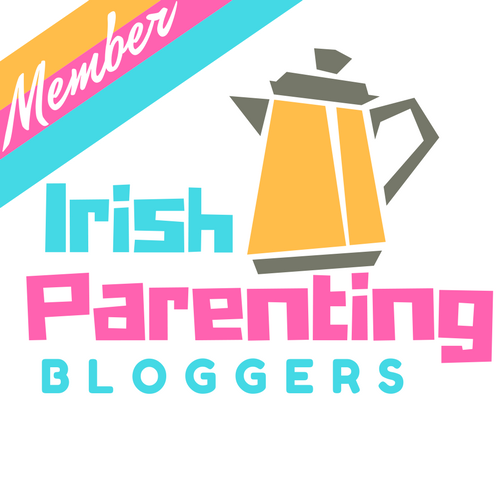
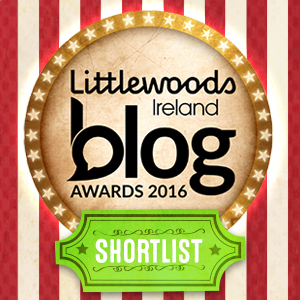
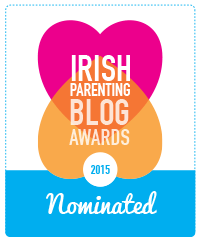
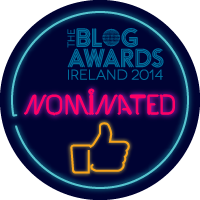
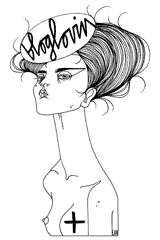
Recent Comments